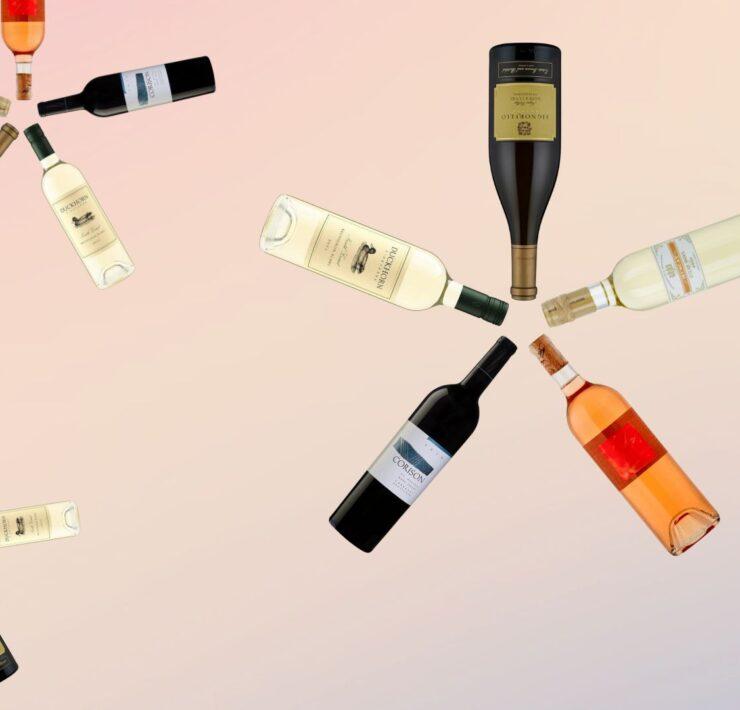As the grandson of the great Robert Mondavi, many believe that Carlo Mondavi was destined for a role in wine. And while some with similar lineage may take it for granted, Carlo Mondavi has forged a path all his own. And he’s done so in a manner that both honors and takes inspiration from the generations before him.
As vintner and proprietor at RAEN and in partnership with his brother Dante, Mondavi focuses on making Sonoma Coast Pinot Noir. However, via his journey to make wine while honoring the fruit and vineyard lifecycle, he discovered a way to improve farming and vineyard management in regions across the globe. Enter… the electric tractor.
The philosophies that went into creating the Monarch Tractor stem from The Monarch Challenge. The initiative began in 2016 with a focus on clean farming. The electric tractor, which is driver optional and helps increase profitability, is revolutionary in lessening harmful practices and enhancing the farm’s ecosystem on the whole.
Read further to find out Carlo Mondavi’s view of being innovative in the wine industry.
What aspects of your personality makes you a natural innovator?
I grew up in these hills and have witnessed the shift of life happen right in front of my eyes. I’ve seen the mass disappearance of the Monarch butterflies, the colony collapse disorder with the bees, and more. This hope to elevate what we do led to The Monarch Challenge. I thought it would fail, given the economic and carbon footprint divide. But the challenge led to the solution in the Monarch Tractor. It was out of desperation and the desire not to fail.
In many ways, I have never thought of myself as an innovator, although I love innovation. I am very traditional and old school in my farming and winemaking. Traditional in the sense of farming with nature as permaculture first. And also traditional in the winery as we don’t allow yeast into the building, and we don’t fine or filter. It’s natural.
Given the times, I think what has made me innovate was the desperate need to change how we farm. There’s a need to protect mother earth and continue to live on this beautiful planet for the next 100 years.
When did you realize that you were an innovator?
It all ties back to the farm. The day we drove the Monarch Tractor out of our factory and onto the dirt of the Wente family farm in Livermore, California. To think we could now power a farm with wind, geothermal, hydro, and the solar energy around it was incredible. Or that farmers could go beyond organic without the cost or carbon footprint. It would give farmers the keys to wean off the dangerous chemicals destroying our soil microbiome and farm biology. It also allowed for making significantly more profit, which is a big deal.
That said, I am not an innovator. I am a part of a brilliant and innovative team, one of many. But that was the moment when I knew we had changed farming for the better.
Describe the moment in your career when your passion for wine shifted to focus on the business of wine.
My focus is still purely on the wine and the farm. I still don’t consider myself a true businessman in the traditional sense, and knowing this, I try my best to surround myself with people with a deeper focus here. I realise that to follow my dreams in farming and winemaking at RAEN, I need to make sure the business sustains. The same is true at Monarch. It is all about the team.
Describe a time when you were sure you couldn’t accomplish what you were hoping for but ended up succeeding.
The Monarch Challenge. I began the initiative in 2016 with friendly conversations. By spreading awareness about the health risks and environmental risks of herbicides and dangerous chemicals, we could get rid of these chemicals from our landscapes. In turn, we could protect the bees, soil microbiome, and all the downriver life it touches, including us as humans.
After about a year and talking to many farms, I thought The Monarch Challenge would fail. I learned the larger farms that hold most of the land would not convert due to the cost implications. In some instances, these larger farms cited a more significant carbon footprint associated with clean farming due to the extra passes. Then the fires of 2017 hit, and I knew if we didn’t bridge the economic and carbon footprint divide, The Monarch Challenge would surely fail.
Now with the innovation of the Monarch Tractor, we can bridge both divides. We can also keep the farmers safe. By being all eclectic, we eliminate carbon footprint, which is so important with climate change. Especially since turning on one diesel tractor is like turning on 14 cars. This solution has changed everything and will allow The Monarch Challenge to be massively successful.
How do you foster innovation among those on your team/colleagues?
The first goal is to find a team inspired by the goals, movement and culture associated. If we can find that, then the next steps are easy.
Our team has continued to be fueled by the importance of their jobs and the mission. The most recent IPCC (International Panel on Climate Change) report on Global Warming made it more apparent that what we are doing will change the world for the better. And if Monarch accomplishes what we have laid out and changes the planet for the better, we will quickly become the world’s most valuable tractor company. Not in terms of dollars and cents but our mission and its value and importance to our planet. That is real value, and that is what matters. Our team is in line with that.
Separately our goal at RAEN is to produce distinctive Pinot Noir from our 18.5 acres capable of sitting alongside the world’s finest. To do this, we start at the site, how we honor that site and how we take care of our planet so we have a future to continue to do what we love most. These are all areas our team is deeply passionate about.
What kind of innovation are you excited to see in the wine industry? Either in the near or distant future.
The single most significant area for improvement is in farming. I am excited to see for the first time the ability for our farms to bridge away from fossil fuel farming and into a renewable energy farming future. I am excited to see our farms have a path to fewer chemicals and, in some instances, zero chemical inputs. You have healthier soils, healthier plants, and microflora after harvest when you follow these practices. When the fruit arrives at the winery, you find that you have more beneficial chemistry in your fruit and need fewer inputs in the winemaking. It all starts on the farm, where we must focus our time and energy on being innovative right now.
What wine region do you believe is being the most innovative with their winemaking?
Over the last 50 years, I would say, without question, Napa and Sonoma. My grandfather Robert was called crazy for believing we had the soil, climate and know-how to make wines that could sit in the company of the world’s finest. But he pushed through and innovated in the cellar. He pioneered stainless steel to have cleaner fermentations. And cold fermentation to retain freshness in white wines. There was a deeper understanding of malolactic fermentation and so much more. This chip on the shoulder – the ‘we can do it’ spirit – is what led to so much clarity, understanding and innovation. It’s helped build a big part of the world’s winemaking foundation today.
If you had $1 million to implement a new idea to push the industry forward, what would it be?
Innovations like the Monarch Tractor allow us to get rid of chemicals and fossil fuels from farms and renewable energy resources so we can power our farms from the tractor to the winery pumps with wind, geothermal, hydro and solar energy. We can no longer choose between soil and farm biology and climate.
And because wine is meant to be fun, what’s your go-to beverage after a long day?
It depends on the season. During harvest, it would be Arneis from Piemonte, Alta Lange Sparkling, or Champagne. Or, if I have been tasting through barrels all day and super thirsty, I’d drink an ice-cold pilsner.









